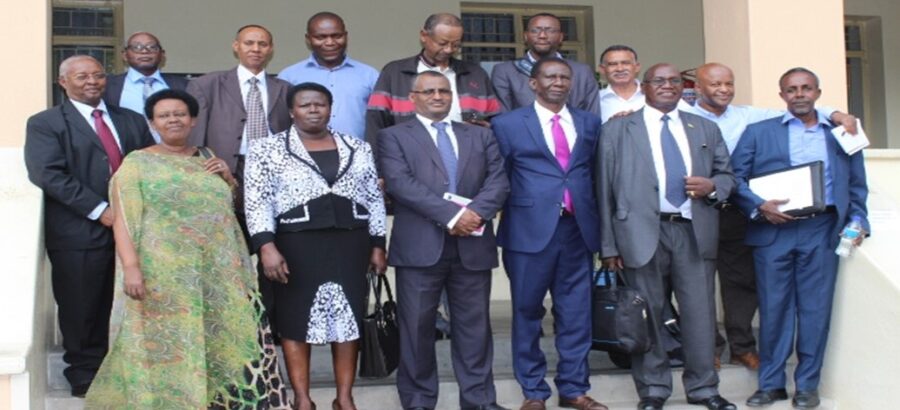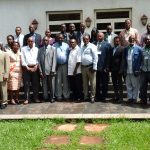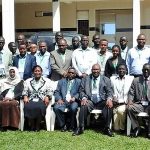IGAD Centre for Pastoral Areas and Livestock Development (ICPALD) has organized the above regional experience sharing mission to Namibia for IGAD Ministers and Parliamentarians from Dec 12-15, 2016. Livestock identification and traceability is an emerging system being used by both the exporting and importing countries to protect public health, enhance food safety and trade in live animals and livestock products. To be effective a LITS system requires two basic components, an identification system (for example brands, marks or a device) and a system that tracks an animal, or group of animals, along the value chain to the final destination. It is only when these components are all put together that a LITS system becomes functional and it is, therefore, imperative that the IGAD region strengthens efforts of disease prevention and control and finds ways of enhancing and sustaining livestock-based trade and its benefits.
IGAD /ICPALD and AUIBAR have been supporting member states in the areas capacity building for relevant national teams; development & dissemination of regional legal framework and LITs guidelines, awareness creation and supporting two member states in piloting LITs; among others. These efforts need to be strengthened with enhanced buy-in from the policy makers for more resource allocation to LITs application and running and hence the mission organized.
The delegation had a total of sixteen (16) participants; Minsters/sate Ministers and parliamentarians from IGAD member states; North East Africa Council (NEALCO) representing the regional livestock stakeholders association, AU-IBAR and IGAD/ICPALD.
Dr Solomon Munyua, the Director of ICPALD, during the reception at the Ministry of Agriculture, Water and Forestry, introduced the delegation and thanked the host country, Namibia as well as the participating countries. He acknowledged that the experience sharing mission was important in that it allowed countries to learn from other sister African countries such as Namibia that has been successful in exporting livestock and livestock products to the lucrative European markets. In her remarks, Hon. Anna Shiweda, Deputy Minister, on behalf of the Government and people of Namibia welcomed and thanked IGAD member countries for choosing Namibia for the experience sharing on LITS.
Some of the major LITS good practices / lessons and benefits in Namibia: Coordinated institution set up, public and private sector collaboration in the promotion of LITS application for trade in livestock and livestock products, observations of HACCP/ISO compliance, private export abattoirs, observations of feedlots fattening livestock for better body weight and quality meat, integrated laboratory services for livestock disease screening and diagnosis to encourage livestock disease control, strict movement permits and export certification, maintenance of the disease free zone with monitoring and infected zones, provision of vaccine production as well as diagnostic services by the Central Veterinary Laboratory, integration of feed production, feedlots and meat plant by the MEATCO led by the Namibian meat board, Auction market, support of government to create and facilitate enabling environment for livestock sector development, importance of conducive policy environment for investment in livestock trade, inter-sectoral collaboration to facilitate linkage between livestock farmers, feedlots and marketing.
The major recommendations include: MS to institutionalize LITS to strengthen its application and use, make use of the validated regional LITS legal framework to formulate LITS Acts in member states , advocate for implementation of LITS for trade, disease control, food safety and cattle raiding mitigation as appropriate and mobilize resources at national and regional levels; improve collaboration and coordination among stakeholders in each member states and enhance awareness on the benefits of LITs at different levels .
The delegation appreciated Namibia government for hosting and facilitating the visit and thanked IGAD /ICPALD & AUIBAR for organization of this important mission. Finally the Hon. Ministers and Parliamentarians underlined the visit was an eye-opener and committed themselves to work hard for the LITS introduction and or strengthening in their respective member states to boost livestock trade and disease control and curb cattle rustling in the region.
ICPALD/IGAD expresses its appreciation to EU for funding this activity under Surveillance for Trade Sensitive Diseases /STSD/ project.






